“The meeting of minds between Sir Lugard and the leaders of the Sokoto Islamic Caliphate was not surprising for, in practice, there were no emotional or philosophical differences between imperialism which Lugard championed and the feudalism in Northern Nigeria before British colonial rule.” – An unpublished work
Britain operates a parliamentary democracy which is subordinated to a constitutional monarchy. That was why the last official function discharged by the queen was to invite Liz Truss – the new leader of the Conservative Party – to form a government. This summit took place at the queen’s summer residence at Balmoral Castle, Scotland, on Tuesday, September 6, 2022.
Join our WhatsApp ChannelREAD ALSO: Nigeria-Biafra War: Queen Elizabeth II On Posthumous Trial
Two days later, Queen Elizabeth 11 died, and Prince Charles ascended the throne. Thus the second week of September was a fateful one for Britain as it produced a new head of state in King Charles 111, and a new head of government – Liz Truss.
But the queen did not go quietly as befits a sovereign who participated in history, witnessed it, and shaped it for 70 years. For as she lay on her dying bed and Prince Charles and members of the royal household gathered at Balmoral Castle, among the many get-well wishes she received from people around the world was something contrary from Uju Anya – linguistics professor at Carnegie Mellon University. Anya tweeted that she wished the queen ‘excruciating pain’ for Britain’s legacy of ‘thieving, raping, and genocide’ in the empire.
The whole world, led by Jeff Bezos, was aghast and Anya’s tweet was widely condemned. But not a few people thought that the linguistics professor may have calibrated her missive, just so, in order to provoke an enquiry into the queen’s legacy in Africa in general, and in Nigeria in particular.
Elizabeth became queen upon the death of her father, King George V1, on February 6, 1952. As it were, the contours of the geographical mass and constituent nations of Nigeria had become settled at this time. This was essentially a mapping process as Britain and France delimited their spheres of influence in West Africa. Her reign began as the Governor-General, Sir John Macpherson, conducted a census (1952), and introduced the Macpherson Constitution (1951) and the Lyttleton Constitution (1954). Those recommended a federal structure with regional power centres in Enugu, Ibadan, and Kaduna. Nigerian nationalists – Dr. Nnamdi Azikiwe, Chief Obafemi Awolowo, Alhaji Ahmadu Bello, among others – then followed it up with the 1957 constitutional conference at Lancaster House, London, with Sir Alan Lennox Boyd, the Colonial Secretary. The process to decommission the Royal West African Frontier Force and launch the Nigerian Army was begun. A date was set for independence and self-rule was inaugurated in 1957 in the Eastern and Western regions. The Northern Region remained under colonial rule until 1959.
That difference in dates for the inauguration of self-government in the three regions showed, first: a divergence of opinion between thought leaders in the south (Azikiwe and Awolowo) and in the north (Bello). Secondly, it showed a coincidence of minds between the north and Britain. The thinking of Alhaji Bello, who had in this countdown to independence, announced the unpreparedness of the north for self-government, was aligned with that of the colonial establishment who felt they were being hounded out of power in the country prematurely.
Let’s look at this in context in order to appreciate its full ramifications. The permanent interest of Britain in Nigeria is her trade in a market that Adam Smith wouldn’t recognize. There was an outward flow of goods – cotton, timber, cocoa, groundnuts, palm oil, kernel oil, and hides & skin. And in return Britain created for us a class of Europeanized Nigerian elite trained to serve the parochial interests of anyone in power. Britain’s permanent agency for this resource flight are the descendants of the ruling class of the Sokoto Islamic Caliphate, whether they are in native attire as politicians entitled to rule; or in a soldier’s uniform usurping power for reasons that blur patriotism and gamesmanship. The basis for this alliance was laid when Lugard vanquished Sultan Muhammad Attahiru 1 in battle, at Burmi, on the banks of Gongola River, which completed the overthrow of the hegemony of the Sokoto Islamic Caliphate.
With the death of Muhammad Attahiru I in March 15, 1903, Lugard immediately caused to be installed as Sultan, his brother, Muhammad Attahiru 11, even before the colonial office could tell the difference. Lugard’s move was a strategic initiative for it was the basis of his indirect rule policy with which he successfully administered Northern Nigeria, as high commissioner, with limited staff and resources. What Lugard delimited as Northern Nigeria were the former territories under the Sokoto Islamic Caliphate – Hausa city states, Nupe (Bida) emirate, and Ilorin emirate – which he expanded to include territories they had not conquered and/or converted – the Lower Niger and Benue River belt, and Kanem Borno. That singular action restored their power and it has remained the basis of the mutually beneficial relationship between the northern elite and Britain.
Nigeria has a complex layer of problems that can be traced, for simplicity, to our resource curse – crude oil. In June 1956, crude oil gushed out of a Shell-D’Arcy well in Oloibiri district of Ogbia Kingdom, an Ijaw community located today in Bayelsa State. The discovery of crude oil in the wetlands of Nigeria’s Atlantic south-southeastern coast may or mayn’t have contributed to a rethinking on Bello’s part of his opposition to the timetable for Nigeria’s independence. But it’s documented that he sought and got guarantees and concessions from Alex Lennox, which other interested parties to the negotiations didn’t get.
Britain’s motive for those concessions were always self-evident but the nationalists from the south missed it completely.
The colonial legacy of Elizabethan Britain is the creation of a country which had a great potential but was designed from inception to fail. Nigeria is a kakistocracy that enthrones the most incompetent hands to the summits of the branches of government. Nigeria’s incumbent president, Maj. Gen. Muhammadu Buhari was allegedly handpicked in elementary school by Alhaji Bello and handed over to British military recruiters for enrolment and mentorship.
He went on to receive the best schooling that military academies could provide at home and abroad. This’s his second iteration as head of state but he characteristically approaches governance with a feudalist’s mentality of entitlement and the capture of power for its own sake. Lacking therefore a vocation to public service, he presides now over a crude oil-exporting, petrol-importing, debtor nation in full-blown anarchy. Like Mona Flanders, he openly admits that he has run out of ideas, but he never follows it through with a talk of handing over power to his vice president: Lest Nigerians experience good governance in error.
Queen Elizabeth 11 gave us a dependency where we asked for independence.
Albert Ik Ngene, a retired Community Practice Pharmacist (Nigeria) and advocate for youth causes, is PBA’s Public Interest analyst. He sent this in from Atlanta.

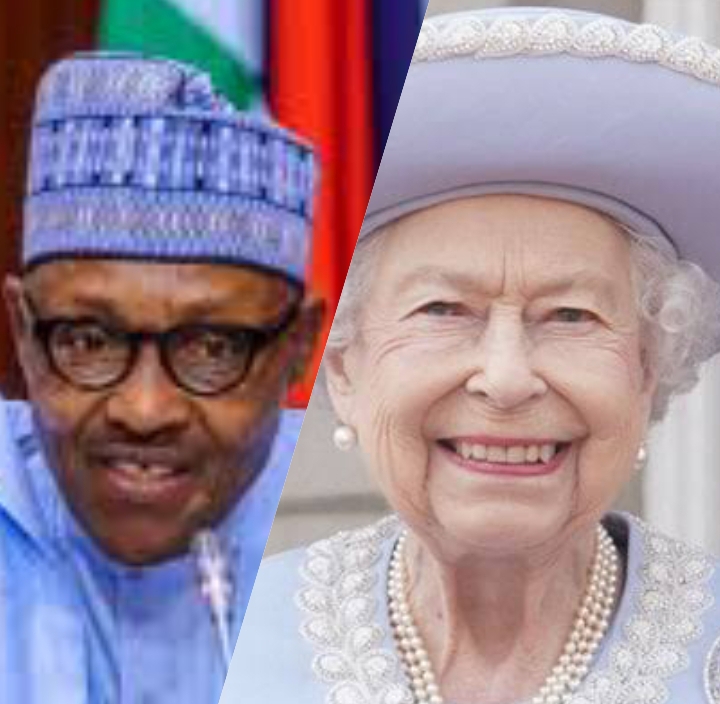




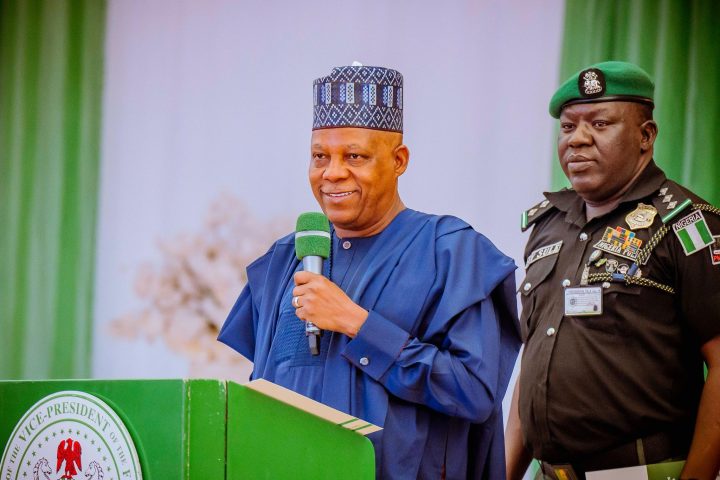






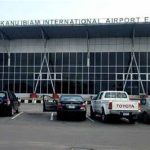


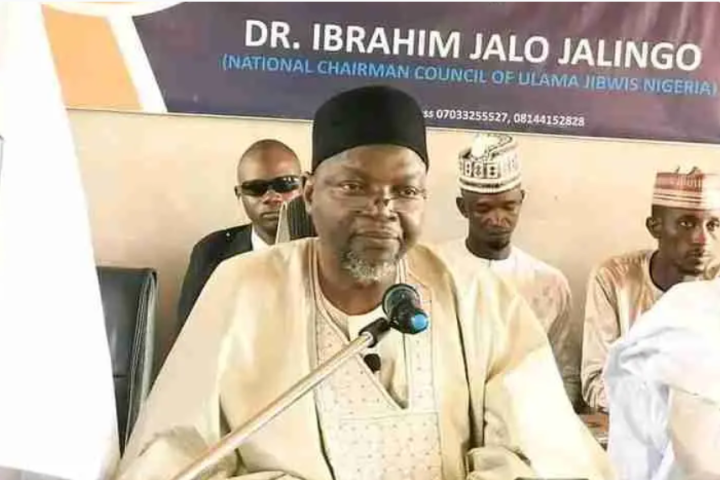
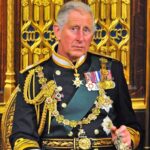
Follow Us